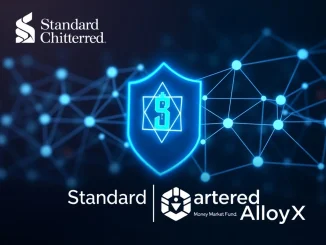
Heads up, crypto enthusiasts! A major showdown is brewing in the U.S. as the Blockchain Association, a powerful force representing leading crypto companies, is taking a stand against the IRS. They’re not just voicing concerns; they’re actively urging Congress to strike down a controversial IRS rule targeting DeFi brokers. What’s all the fuss about? Let’s dive into the heart of this critical issue and understand why this could significantly impact the future of decentralized finance and your crypto taxes.
Why is the Blockchain Association Fighting the IRS DeFi Broker Rule?
Imagine a regulatory rule so problematic that it unites major players like Coinbase, Kraken, and Uniswap Labs to take collective action. That’s precisely what’s happening with the IRS’s DeFi tax regulation concerning broker revenue reporting. The Blockchain Association, championing the interests of 75 member companies, argues this rule is fundamentally flawed and represents a regulatory overreach. But what exactly are their grievances?
- Flawed Premise: The association believes the rule is built on a misunderstanding of how decentralized finance (DeFi) actually operates. They argue that applying traditional broker definitions to DeFi entities is like fitting a square peg into a round hole.
- Regulatory Overreach: Critics argue that the rule, finalized in the waning days of the Biden administration, oversteps the IRS’s authority and imposes undue burdens on the burgeoning DeFi sector. They see it as stifling innovation and potentially pushing DeFi activities overseas.
- Unrealistic Implementation: The Blockchain Association questions the practicality of enforcing this rule, especially given the decentralized and often pseudonymous nature of DeFi. How can you effectively track and report revenue in a space designed for permissionless and borderless transactions?
In essence, the core argument is that the IRS DeFi broker rule is not only technically unsound but also detrimental to the growth and development of the DeFi ecosystem in the United States.
What Exactly Does the IRS DeFi Broker Rule Entail?
Let’s break down the specifics of this contentious rule. The IRS finalized a mandate requiring DeFi brokers to report gross revenue from digital asset sales. This rule is slated to take effect after January 1, 2027. While it might seem straightforward on the surface, the devil is in the details. Key aspects of the rule include:
| Aspect | Details |
|---|---|
| Reporting Requirement | DeFi brokers must report gross revenue from digital asset sales. |
| Effective Date | After January 1, 2027. |
| Target Entities | “DeFi brokers” – the definition of which is a major point of contention. |
| Rationale | To enhance tax compliance and revenue collection from the rapidly growing digital asset market. |
The ambiguity around the term “DeFi broker” is a central concern. Who exactly qualifies as a broker in the decentralized world? Is it decentralized exchanges (DEXs)? Liquidity providers? Smart contract developers? This lack of clarity is causing significant unease and uncertainty within the crypto industry.
Senator Ted Cruz Joins the Fight Against DeFi Tax Regulation
Adding political firepower to the Blockchain Association’s efforts, Senator Ted Cruz has stepped into the arena. He introduced a bill specifically designed to repeal IRS reporting rule. Senator Cruz’s involvement signals a growing bipartisan awareness of the complexities and potential pitfalls of regulating DeFi. His bill represents a significant challenge to the IRS rule and underscores the seriousness with which lawmakers are taking the industry’s concerns.
This isn’t just about tax compliance; it’s about the future of innovation in the digital asset space. Supporters of the repeal argue that overly burdensome regulations could stifle growth, drive innovation overseas, and ultimately harm the U.S.’s competitiveness in the global crypto landscape.
What are the Potential Impacts of the IRS DeFi Broker Rule?
The implications of the IRS DeFi broker rule are far-reaching and could reshape the DeFi landscape. Let’s consider some potential impacts:
- Increased Compliance Burden: DeFi platforms, even decentralized ones, might need to implement complex reporting mechanisms, potentially compromising their core principles of decentralization and privacy.
- Reduced DeFi Activity in the U.S.: Stricter regulations could deter users and developers from engaging with DeFi platforms within the U.S., pushing activity to more regulatory-friendly jurisdictions.
- Innovation Slowdown: The uncertainty and compliance costs associated with the rule could stifle innovation and slow down the development of new DeFi protocols and applications.
- Legal Challenges: If the rule is not repealed, it’s highly likely to face legal challenges from industry players who argue it exceeds the IRS’s authority or violates fundamental principles.
The Path Forward: What Happens Next?
The battle over the IRS DeFi broker rule is far from over. Here’s what to watch out for:
- Congressional Vote: Senator Cruz’s bill needs to gain traction in Congress and ultimately secure enough votes to pass. This will involve lobbying efforts from both the crypto industry and potentially pushback from regulatory bodies.
- IRS Response: The IRS may respond to the criticism by clarifying or modifying the rule. However, given the strong opposition, a complete repeal is the industry’s preferred outcome.
- Industry Advocacy: The Blockchain Association and other crypto advocacy groups will continue to play a crucial role in educating lawmakers and the public about the complexities of DeFi and the potential negative consequences of the rule.
Final Thoughts: A Critical Juncture for DeFi
The Blockchain Association’s urgent call to repeal the IRS DeFi broker rule marks a critical moment for the cryptocurrency industry. This isn’t just about taxes; it’s about striking the right balance between regulation and innovation. The outcome of this debate will significantly shape the future of DeFi in the United States and potentially set a precedent for how other jurisdictions approach the regulation of decentralized technologies. Stay tuned as this story unfolds – it’s a pivotal moment for the crypto world!



